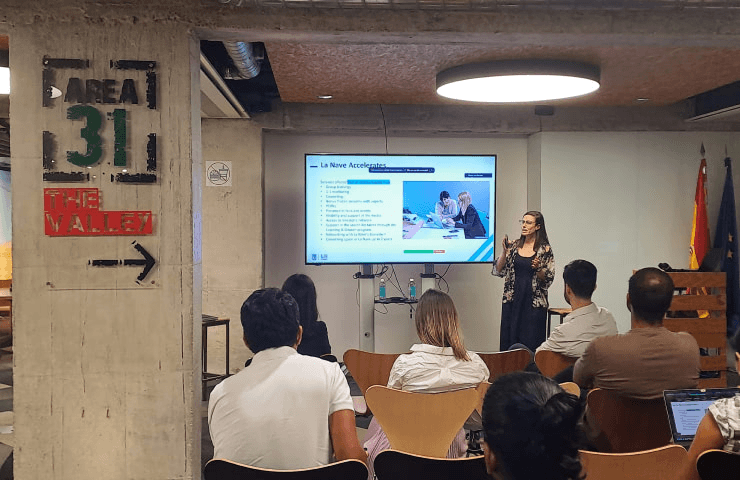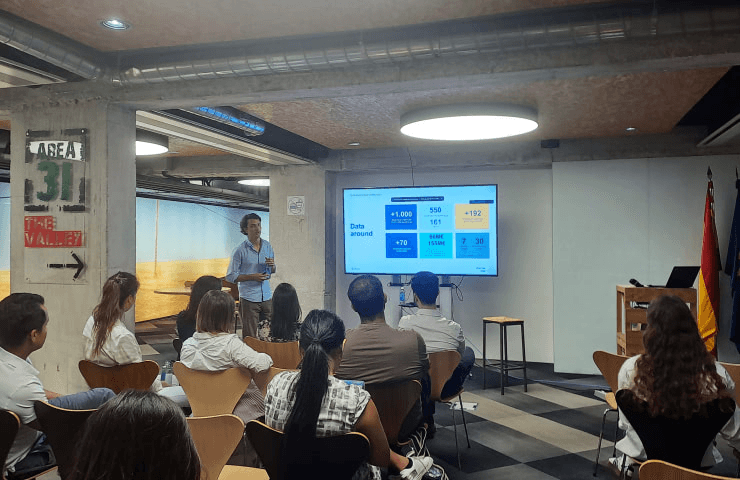- Home
- News And Events
- What’s Going On
- International Ie Students Discover Spain’s Post-graduate Visa Options
International IE Students Discover Spain’s Post-Graduate Visa Options

Legal consultants and industry representatives advise students looking to extend their presence in Spain following graduation – organized by the Entrepreneurship & Innovation Center.
Lawyers from the legal consultancy firm RCD and representatives from companies such as Innobuster, Telefonica, Plus9, La Nave, Impace Hub, and Desafia Tel Aviv visited IE to educate students and alumni on how to legally remain in Spain after completing their studies.
Given that many IE students come from different parts of the world and are interested in living and working in Spain after they, it is beneficial for them to learn about various visa options that allow foreign professionals to stay in the country.
According to Oriol Martinez, an immigration law attorney from RCD, there are two types of visas to consider: the entrepreneur permit and the digital nomad permit.
For entrepreneurs, the key requirement is to demonstrate that their startup is scalable, innovative, and economically beneficial for Spain.

However, Carlos Dominguez, an innovation and tech lawyer from RCD, reminded students that while founding a startup may be enticing, there are several important factors to consider. For example, it is crucial to carefully select co-founders and other individuals who can provide assistance along the way.
“You should think about having a shareholders agreement that says what each of the founders is going to do and how much they are going to earn,” said Dominguez.
For individuals who work remotely and are not tied to a specific location, applying for a digital nomad visa requires providing evidence of their occupation being eligible for remote work and having at least three months of experience in a non-Spanish company that has been in existence for at least a year. Freelancers applying for the permit must also provide proof of at least one year of freelance activity and a minimum three-month collaboration with one client or customer.
“You can apply for this type of permit as many times as you want,” Martinez responded to an attendee’s question regarding the possibility of facing rejection.
To further support and guide event attendees, IE Business School invited representatives from investment funds and mentorship organizations that assist with startup formation, scaling, and growth. One particularly promising company mentioned was Telefonica and its open innovation initiative called Wayra. Wayra offers a four-month individually tailored acceleration program to startups, providing access to top-notch mentors and entrepreneurs to help projects flourish.
“The are many business opportunities with Telefonica: from validating your business model to testing your product in a real environment,” said Luis Murrieta from Wayra.
With such extensive activity, Wayra has already invested in one thousand companies, with over 550 of them achieving success and 70 being valued at over $50 million. These impressive numbers offer promise for entrepreneurs seeking a thriving business to obtain a Spanish residence permit.
